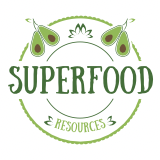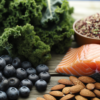Diet and Nutrition Tips 2024: Your Ultimate Guide to a Healthier You
In an ever-evolving world, staying updated on diet and nutrition trends is crucial for maintaining a healthy lifestyle. With 2024 just around the corner, it's essential to equip yourself with the latest tips and guidelines to achieve your health and wellness goals. Dive into this comprehensive guide filled with practical advice, from balanced diets to mindful eating, and start your journey towards a healthier you today.
Balanced Diet Fundamentals
Understanding the basics of a balanced diet is the first step toward a healthier lifestyle.
Understanding Macronutrients: Proteins, Carbs, and Fats
Macronutrients are the cornerstone of our diets. Proteins, carbohydrates, and fats each play a critical role in our body’s functionality. Proteins help in muscle building and repair, carbohydrates provide essential energy, and fats are crucial for brain health and hormone production. The key is to consume these nutrients in the right proportions. For example, a typical balanced plate might include 40% carbohydrates, 30% proteins, and the remaining 30% fats. Tools like MyFitnessPal can assist in tracking your daily intake and maintaining this balance.
The Role of Micronutrients: Vitamins and Minerals
Micronutrients, though required in smaller quantities, are indispensable for overall health. Vitamins such as C and D, and minerals like calcium and iron, support various body functions, from immune health to bone strength. Consuming a diverse range of foods such as fruits, vegetables, nuts, and seeds ensures an adequate intake of these nutrients, helping you steer clear of deficiencies.
Importance of Hydration
Proper hydration cannot be overstated when discussing nutrition. Water facilitates digestion, regulates body temperature, and helps in the excretion of toxins. Aim for at least eight 8-ounce glasses of water daily. Using a reusable water bottle as a constant companion can make meeting this goal more manageable.
Weight Management Strategies
Maintaining a healthy weight is often tied closely to overall wellness. Here are some strategies to help you manage your weight effectively.
Effective Calorie Counting Methods
Counting calories has been a tried-and-true method for weight management. The principle is simple: consume fewer calories than you burn. Use apps like Lose It! or Nutritionix to log meals and track caloric intake effortlessly. Over time, this practice can help you develop a more intuitive approach to eating.
The Role of Metabolism in Weight Loss
Your metabolism significantly impacts how efficiently your body converts food into energy. High-intensity interval training (HIIT), strength training, and even simple activities like walking can boost your metabolic rate. Supplements and certain foods, like green tea and chili peppers, can also aid in increasing metabolism.
Physical Activity Recommendations
For weight management, combining diet with physical activity is most effective. Aim for at least 150 minutes of moderate aerobic activity or 75 minutes of vigorous activity weekly, along with strength training exercises twice a week. Activities such as dancing, swimming, or even gardening can provide enjoyable ways to stay active.
Superfoods to Incorporate in 2024
Superfoods are nutrient-dense items packed with powerful health benefits.
Benefits of Antioxidants
Antioxidants combat oxidative stress and reduce inflammation, which is crucial for preventing chronic diseases. Foods high in antioxidants, such as berries and dark leafy greens, have been linked to reduced risk of heart disease and certain cancers.
Top Superfoods: Berries, Nuts, Seeds, and Leafy Greens
Berries are rich in vitamins and fiber, nuts offer healthy fats and protein, seeds like chia and flaxseed are excellent sources of omega-3 fatty acids, and leafy greens provide essential nutrients like vitamins A, C, and K. Including these in your diet can significantly boost your nutrient intake.
How to Integrate Superfoods into Your Daily Diet
Incorporate these superfoods into your meals by adding berries to your breakfast cereal or smoothie, sprinkling nuts and seeds on salads, or using greens as a base for various dishes. Experimenting with recipes like chia seed pudding or berry-packed yogurt parfaits can make this process enjoyable and delicious.
Mindful Eating Practices
Mindful eating is about making deliberate food choices and recognizing hunger and satiety cues, which can enhance digestion and satisfaction.
The Benefits of Slow Eating
Eating slowly allows your brain to catch up with your stomach, helping you recognize when you’re full and preventing overeating. Studies have shown that slow eaters tend to consume fewer calories and report higher levels of satisfaction.
Techniques to Avoid Overeating
Techniques like eating without distractions (e.g., turning off the TV and putting away your phone), using smaller plates, and savoring each bite can help prevent overeating. Practicing portion control by pre-serving meals rather than eating directly from packaging also makes a difference.
The Importance of a Balanced Eating Mindset
Developing a healthy relationship with food involves more than just what you eat. It’s about understanding why you eat and recognizing emotional cues. Techniques like journaling your meals and feelings or seeking support through therapy can be beneficial in fostering a balanced eating mindset.
Diet Trends to Watch in 2024
Several diet trends are making waves in the health community. Understanding these can help you decide what fits best with your lifestyle and wellness goals.
Plant-Based Diets
Plant-based diets, including vegetarian and vegan lifestyles, are linked to numerous health benefits, such as lower risk of heart disease and improved digestion. These diets emphasize whole foods like fruits, vegetables, whole grains, nuts, and seeds.
Keto and Low-Carb Diets
Low-carb diets, notably the ketogenic diet, focus on reducing carbohydrate intake and increasing fats to promote fat burning. While these diets can be effective for weight loss and managing blood sugar levels, they may not suit everyone. It’s critical to consult a healthcare provider before making significant dietary changes.
Intermittent Fasting: Pros and Cons
Intermittent fasting involves cycling between periods of eating and fasting. It can help with weight loss, improve metabolic health, and simplify meal planning. However, it may also lead to excessive hunger and nutrient deficiencies if not managed properly.
Tips for Dining Out
Dining out doesn’t have to derail your healthy eating habits.
How to Make Healthy Choices at Restaurants
Opt for menu items that are grilled, baked, or steamed instead of fried. Prioritize dishes with vegetables and whole grains and ask for dressings or sauces on the side to control calorie intake.
Reading Menus and Nutritional Information
Many restaurants now provide nutritional information on menus. Use this data to make informed choices, seeking out meals with balanced macronutrient content and reasonable calorie counts.
Managing Portion Sizes
Portion sizes at restaurants are often larger than necessary. Consider sharing entrees with a dining companion or asking for a to-go box at the beginning of the meal to set aside half your portion, preventing overeating.
Sustainable Nutrition Choices
Sustainability in our food choices benefits both personal health and the environment.
Importance of Choosing Sustainable Foods
Choosing sustainably sourced foods can reduce your carbon footprint and promote better farming practices. Seafood, for example, should be sourced from sustainable fisheries to prevent overfishing and ecosystem damage.
How to Reduce Food Waste
Reducing food waste starts with proper planning. Create shopping lists, use leftovers creatively, and compost food scraps. Websites like Love Food Hate Waste offer valuable tips on minimizing waste.
Seasonal and Local Eating Benefits
Eating seasonal and locally-sourced foods reduces transportation emissions and supports local economies. Farmers’ markets and community-supported agriculture (CSA) programs are excellent resources for fresh, seasonal produce.
Conclusion
Embarking on your health journey with up-to-date diet and nutrition tips is an empowering step towards a better you. By implementing these strategies, you can enhance your well-being, achieve your fitness goals, and enjoy a more balanced lifestyle. Remember, small, consistent changes are key to long-term success. Stay informed, stay motivated, and make 2024 your healthiest year yet.
Feel empowered by these insights? Share your experiences or ask questions in the comments below. Join our community and let’s make wellness a collective journey!










